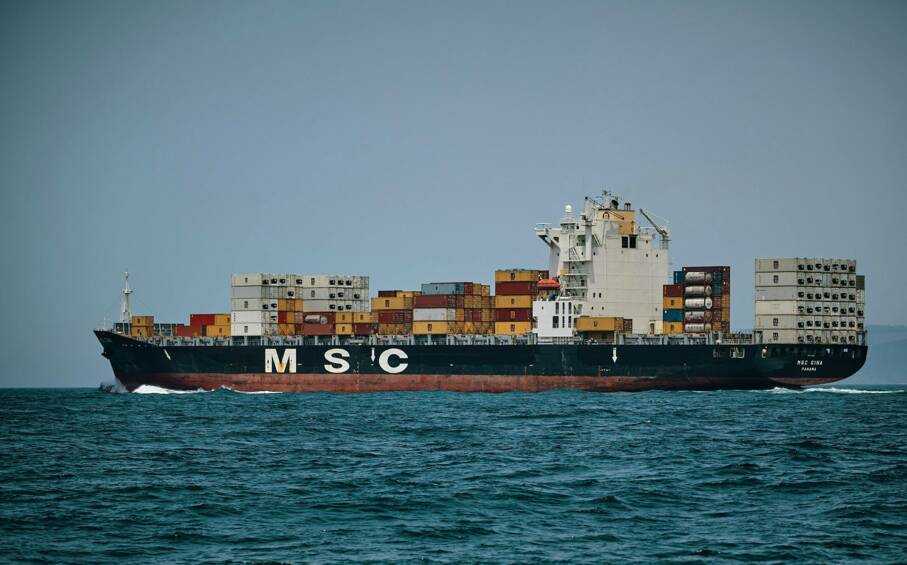Coface has upgraded our risk assessment for the UK transport sector but it remains high risk as many companies are carrying a heavy load of corporate debt. Our growing appetite for overseas holidays this Summer has helped the airline industry recover after the sharp decline in the pandemic years. However, other areas of the transport sector are experiencing turbulence caused by rising costs, lower demand and corporate debt.
Background
Transport accounted for five of the 20 sector upgrades in Coface’s latest Barometer Report, including the UK which we moved from very high to high risk in common with the rest of Western Europe. The other four were in Saudi Arabia, UAE (both now low risk), South Korea and China (both now medium risk).
After a difficult period for the sector in 2022-23 caused by a slowdown in global trade activity, especially sea and air freight, we have seen improvements this year. In particular, there’s been a surge in air passenger numbers and a recovery in global freight despite the risk of disruption to trade routes from conflict (the Black and Red Seas), climate change (low water levels in The Panama Canal) and the partial collapse of the Francis-Scott Key Bridge in Baltimore after it was struck by a container ship. And while commercial flights are increasing, there are concerns about the health of Boeing, one of the big two manufacturers in the aviation industry after well-publicised problems this year.
The current UK picture
There have been improvements across the sector but input costs such as fuel remain stubbornly high and levels of debt is a factor across the sector, aggravated by persistently high interest rates. Unsurprisingly, corporate insolvencies for transport and storage are up year-on-year while insolvencies across the sector are up by more than half* compared to before the pandemic. Although some forms of transport have fared better than others:
Air
Rising prices for flights and package holidays haven’t seemed to put off travellers this year. In April, a YouGov Survey of travel trends found that 31% had noticed higher prices in 2023 but 66% were still planning to make an overseas trip in the next 12 months. This enthusiasm is reflected in passenger numbers at Heathrow, the busiest airport in the UK, which reported a record 7.9 million passengers in July at the start of the summer holiday season. Cargo tonnage had also increased (by 8%) compared to July 2023. Air transport was one of the few areas to see a fall in corporate insolvencies in 2023 compared with 2022 and before the pandemic. Instead, one of the greatest risks to the aviation industry is likely to come from its environmental impact which has led to pressure from Governments to reduce emissions (e.g. by investing in sustainable fuels) or face financial consequences.


Road
The change in our buying habits caused by online shopping and food delivery apps has required a growing army of logistics, distribution and delivery services - we’ve all become familiar with the delivery companies plying their trade around our neighbourhoods. According to the SMMT in August, new light commercial vehicle registrations were up 2.7% in the year to date. In addition, the ONS reported that online sales rose across most sectors in July 2024, although this was on the back of a fall the previous month. While business appears to be improving, there are a number of risks to be aware of, including high fuel costs and border delays for haulage companies, uncertain consumer demand and the implications of new technology such as driverless cars and drone deliveries.


Rail
Perhaps the most troubled area of the transport sector and reliant on Government support, rail transport has been hit by strikes, high costs, a fall in commuter numbers caused by the shift towards remote working, as well as the partial abandonment of the HS2 project. The new Government promises rail nationalisation and has committed to bringing rail passenger services under the control of a new body (Great British Railways) which would eventually be responsible for improving infrastructure. The success of this plan will determine the growth of the rail sector, with the government having pledged to guarantee the cheapest fares for a generation.


Sea
Like road transport, activity is typically tied to consumer demand which has been increasing (UK retail sales volumes were up in July according to ONS data). The previous Government also set up 12 new freeports in the last two years with tax incentives to encourage activity (generating £2.9 billion in investment). On the other hand, shipping faces ongoing disruption to major trade routes like the Red Sea, while new post-Brexit border checks and falling trade have added to costs and contributed to a fall in cargo. Quarterly Port Freight Statistics for Q1 show a 6% year-on-year fall in total shipping freight tonnage in major UK ports while Coface’s own analysis has found that corporate insolvencies in water transport rose significantly last year compared with 2022.


How Coface can help
The transport sector is recovering at an uneven rate and corporate insolvencies are yet to peak in the context of level of debt, costs and uncertain demand. But there are still opportunities, provided you tread carefully. Coface has a number of clients in the transport sector and is able to facilitate trade in a number of ways.
· A one-stop-shop for business information, trade credit insurance and collections: Get everything you need to support your credit management team from a AA-rated provider with 75 years in business and expertise in the transport sector.
· A global network with the expertise to monitor cross-border trade and international supply chains: We have more than 4,900 staff, including 700 risk analysts and underwriters and our database holds real-time financial, trading, payment, and fraud information on 195 million companies worldwide.
· Instant access to our latest business intelligence and analysis to make strategic decisions: Coface’s URBA platform gives you a panoramic view of your company’s risk, including information that you won’t find elsewhere about trading partners. You can find unique insights like our Credit Score which indicate a company’s probability of payment default over a twelve-month period, our underwriters’ credit opinions, as well as financial information like turnover and liabilities and an overview of country and sector risk. URBA is available as a standalone solution and doesn’t require a Coface credit insurance policy.
· Helping you anticipate risks: Coface’s data and underwriting expertise means we can spot weaknesses months and sometimes years before they lead to failure and then notify you of changes to our credit score.
· Protect your business:Coface trade credit insurance indemnifies you against financial losses arising from non-payment for goods or services, as well as unexpected issues like supply chain problems, political events, and natural disasters.
· Stay on top of events: Coface’s economic reports provide valuable insights and useful background on the trade, geopolitical, and business climate in more than 160 countries and 13 sectors, including transport.
· Outsource overseas debt collection: Save time and money by using Coface International Debt Collection to recover debts in countries with different cultures, laws, and currencies. We have a global network of trained, multi-lingual professionals on the ground with the resources to investigate late payers and take legal action where necessary.
*Source: Insolvency Service and Coface
Do you want to know how Coface can help your business know more and grow more? Contact us here.


